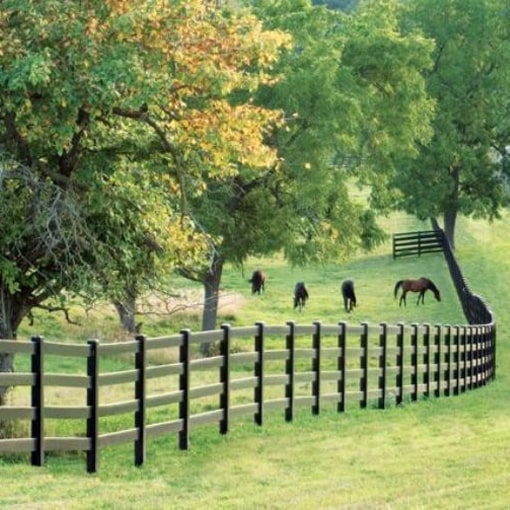All Categories
Featured

When mounting a fencing, picking the right product is key to stabilizing capability, appearances, and budget plan. Wood, plastic, and aluminum are among the most frequently selected fence products, each with its disadvantages and toughness. This guide checks out the benefits and drawbacks of these choices to assist you make an informed decision.

Wood Fencing. Pros:. Natural Beauty: Wood's classic beauty can improve any kind of property with its traditional and warm look. Personalized: You can paint, stain, or sculpt wood to fit your style choices. Economical: Timber fencing is originally much more affordable contrasted to a few other materials. Eco-friendly: As a renewable energy, wood is naturally degradable and frequently considered environment-friendly. Disadvantages:. Maintenance-Intensive: Regular sealing, paint, or discoloration is called for to avoid damage from weather and pests. Prone to Decay: Without proper care, timber can rot, warp, or split over time. Much shorter Life expectancy: Typically, timber fencings last 10-15 years, depending upon the type of wood and maintenance. Wood is a great alternative for those that value appearances and want to purchase normal upkeep to maintain its appearance and toughness.
Vinyl Fencing. Pros:. Low Upkeep: Plastic needs very little treatment-- simply periodic cleaning with soap and water. Weather Resistant: It doesn't warp, rot, or catch insect damages, making it very durable in different climates. Durability: Vinyl fences can last 20-30 years with little to no fixings. Layout Variety: Available in a wide variety of textures, styles, and colors, consisting of wood-like looks. Cons:. Greater Initial Cost: Plastic fencings are extra pricey in advance contrasted to wood. Vulnerability to Cold: In incredibly winter, plastic can come to be vulnerable and breakable to cracking. Restricted Fixing Options: Matching replacement panels can be testing if damages takes place. Plastic secure fencing is excellent for homeowners trying to find a resilient, low-maintenance remedy that provides contemporary versatility.

Light Weight Aluminum Fencing. Pros:. Rust-Proof: Aluminum stands up to rust, making it an excellent choice for damp or damp atmospheres. Sturdy: Despite being light-weight, light weight aluminum is strong and can endure extreme weather. Reduced Maintenance: It requires minimal maintenance, commonly only periodic cleansing. Long Life expectancy: Aluminum fencings can last decades without substantial damage. Elegant Design: Usually made use of for ornamental functions, light weight aluminum fencing includes a smooth, innovative aim to properties. Disadvantages:. High First Financial investment: Light weight aluminum fences are among the pricier options on the marketplace. Much less Privacy: The open styles typical with light weight aluminum fencing don't provide much personal privacy. Susceptible to Damage: While resilient, aluminum can dent if struck with sufficient force. Aluminum is an outstanding option for property owners prioritizing looks and toughness without needing much maintenance.
Making Your Choice. When choosing in between wood, light weight aluminum, or plastic secure fencing, consider your top priorities:
Wood fits those who value an all-natural appearance and do not mind placing in upkeep initiative. Plastic is the most effective alternative for those seeking a low-maintenance, weather-resistant solution. Aluminum supplies streamlined design and long-lasting longevity yet might lack personal privacy. By carefully evaluating these products' features, you can select a fencing that enhances your property while satisfying your visual and useful requirements.
Latest Posts
The Benefits of Regular Car Maintenance at Montclare Auto Repair Reduces Costs
Published Jun 01, 25
1 min read
Protect Your Home with Quality Residential Roof
Published May 25, 25
1 min read
How to Know When Your Car Needs Professional Auto Repair at Montclare Auto Repair
Published May 22, 25
1 min read
More
Latest Posts
The Benefits of Regular Car Maintenance at Montclare Auto Repair Reduces Costs
Published Jun 01, 25
1 min read
Protect Your Home with Quality Residential Roof
Published May 25, 25
1 min read
How to Know When Your Car Needs Professional Auto Repair at Montclare Auto Repair
Published May 22, 25
1 min read